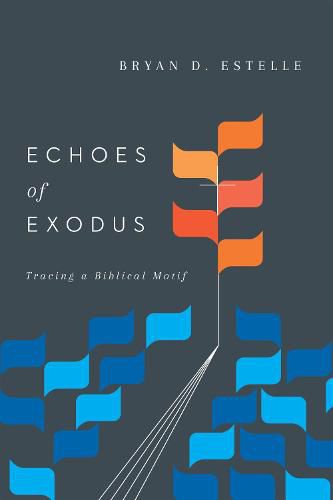Readings Newsletter
Become a Readings Member to make your shopping experience even easier.
Sign in or sign up for free!
You’re not far away from qualifying for FREE standard shipping within Australia
You’ve qualified for FREE standard shipping within Australia
The cart is loading…






This title is printed to order. This book may have been self-published. If so, we cannot guarantee the quality of the content. In the main most books will have gone through the editing process however some may not. We therefore suggest that you be aware of this before ordering this book. If in doubt check either the author or publisher’s details as we are unable to accept any returns unless they are faulty. Please contact us if you have any questions.
Israel’s exodus from Egypt is the Bible’s enduring emblem of deliverance. It is the archetypal anvil on which the scriptural language of deliverance is shaped. More than just an epic moment, the exodus shapes the telling of Israel’s and the church’s gospel. From the blasting furnace of Egypt, imagery pours forth. In the Song of Moses Yahweh overcomes the Egyptian army, sending them plummeting to the bottom of the sea. But the exodus motif continues as God leads Israel through the wilderness, marches to Sinai and on the Zion. It fires the psalmist’s poetry and inspires Isaiah’s second-exodus rhapsodies. As it pulses through the veins of the New Testament, the Gospel writers hear exodus resonances from Jesus’ birth to the gates of Jerusalem. Paul casts Christ’s deliverance in exodus imagery, and the Apocalypse reverberates with exodus themes. In Echoes of Exodus, Bryan Estelle traces the motif as it weaves through the canon of Scripture. Wedding literary readings with biblical-theological insights, he helps us weigh again what we know and recognize anew what we have not seen. More than that, he introduces us to the study of quotation, allusion, and echo, providing a firm theoretical basis for hermeneutical practice and understanding. Echoes of Exodus is a guide for students and biblical theologians, and a resource for preachers and teachers of the Word.
$9.00 standard shipping within Australia
FREE standard shipping within Australia for orders over $100.00
Express & International shipping calculated at checkout
This title is printed to order. This book may have been self-published. If so, we cannot guarantee the quality of the content. In the main most books will have gone through the editing process however some may not. We therefore suggest that you be aware of this before ordering this book. If in doubt check either the author or publisher’s details as we are unable to accept any returns unless they are faulty. Please contact us if you have any questions.
Israel’s exodus from Egypt is the Bible’s enduring emblem of deliverance. It is the archetypal anvil on which the scriptural language of deliverance is shaped. More than just an epic moment, the exodus shapes the telling of Israel’s and the church’s gospel. From the blasting furnace of Egypt, imagery pours forth. In the Song of Moses Yahweh overcomes the Egyptian army, sending them plummeting to the bottom of the sea. But the exodus motif continues as God leads Israel through the wilderness, marches to Sinai and on the Zion. It fires the psalmist’s poetry and inspires Isaiah’s second-exodus rhapsodies. As it pulses through the veins of the New Testament, the Gospel writers hear exodus resonances from Jesus’ birth to the gates of Jerusalem. Paul casts Christ’s deliverance in exodus imagery, and the Apocalypse reverberates with exodus themes. In Echoes of Exodus, Bryan Estelle traces the motif as it weaves through the canon of Scripture. Wedding literary readings with biblical-theological insights, he helps us weigh again what we know and recognize anew what we have not seen. More than that, he introduces us to the study of quotation, allusion, and echo, providing a firm theoretical basis for hermeneutical practice and understanding. Echoes of Exodus is a guide for students and biblical theologians, and a resource for preachers and teachers of the Word.